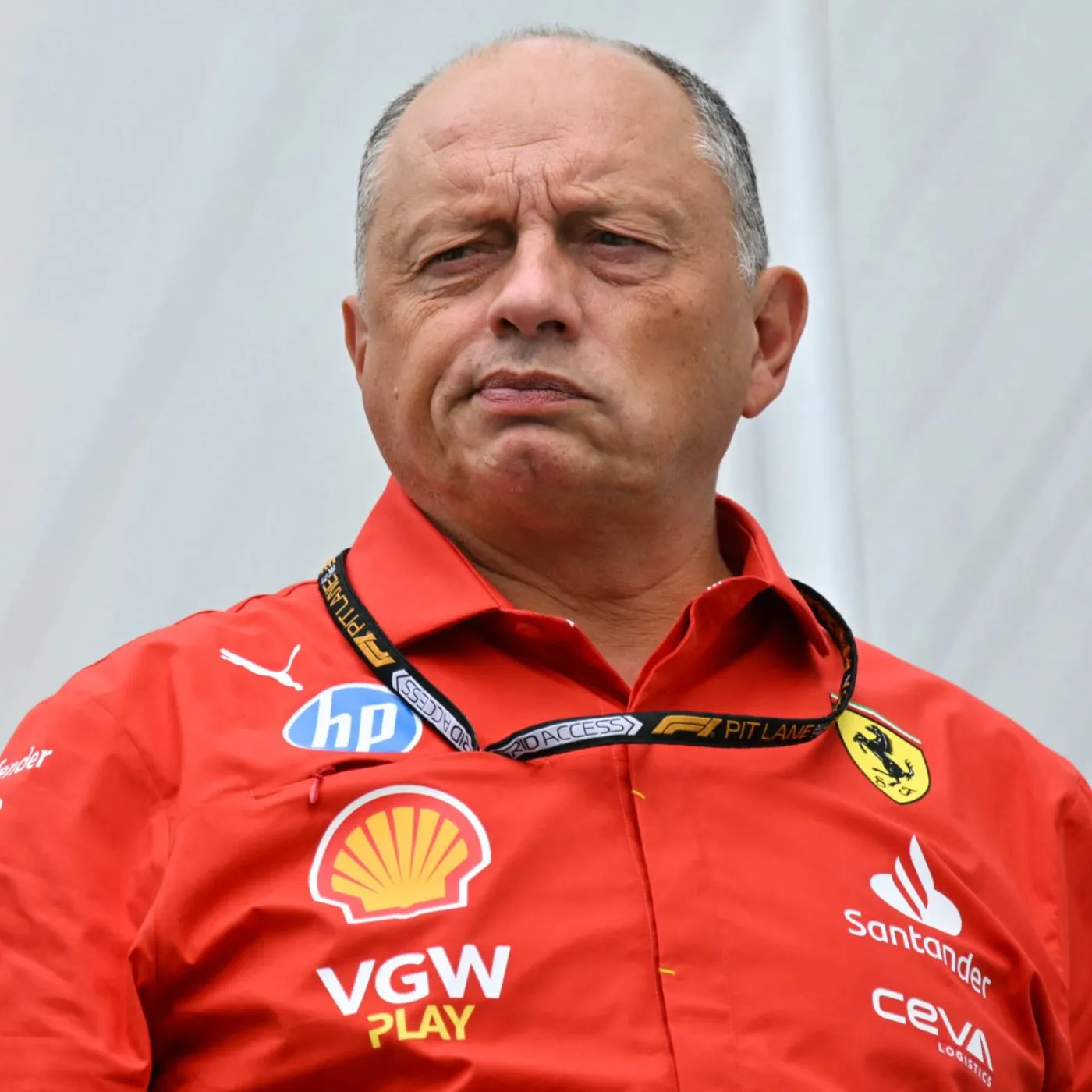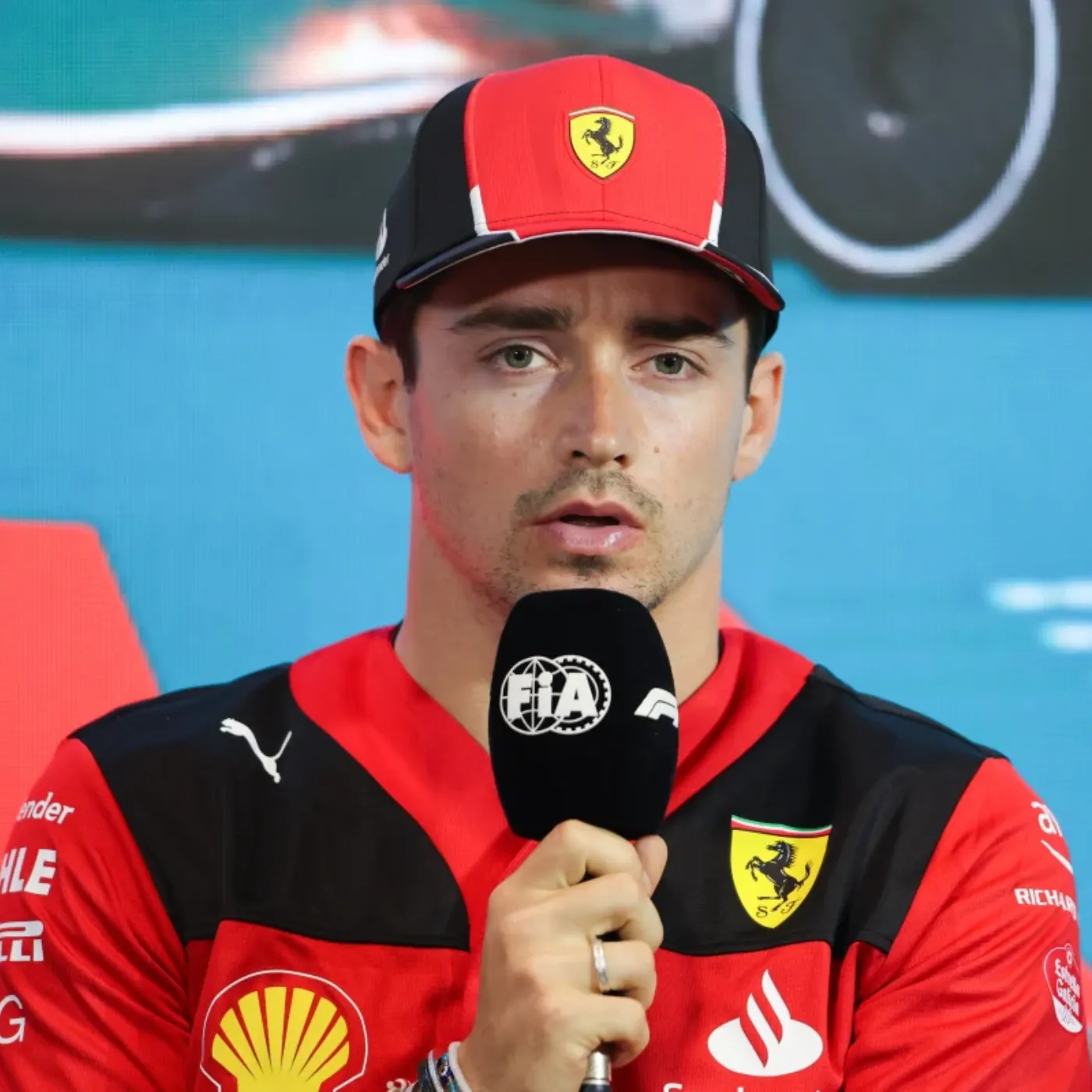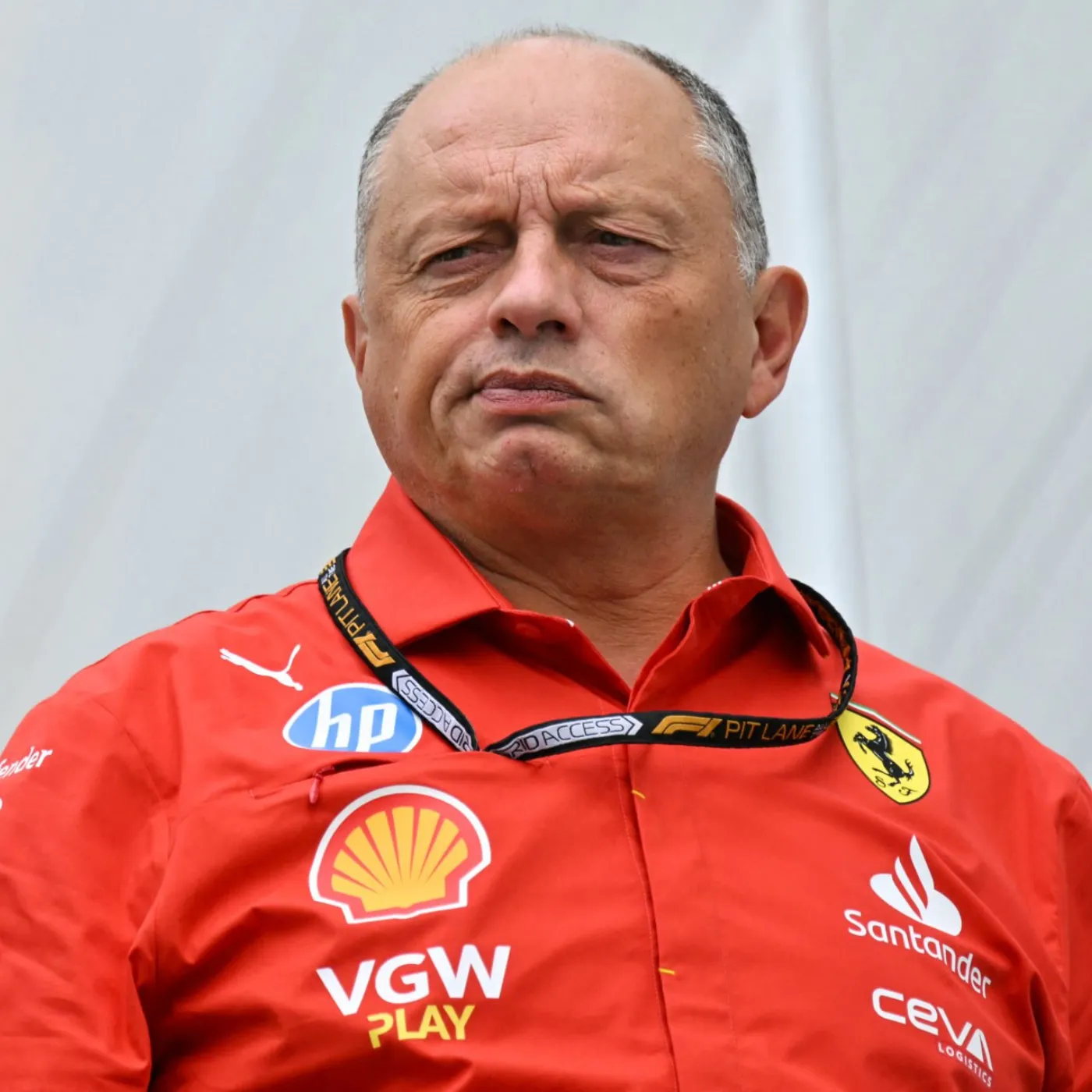

Charles Leclerc’s Dutch GP Nightmare—And Ferrari’s Hidden Call That Could Have Changed Everything
The world of Formula 1 is defined by speed, precision, and the smallest margins between victory and defeat. Every decision counts, every second matters, and every misstep becomes history. At the Dutch GP in Zandvoort, this harsh reality struck Charles Leclerc harder than ever before. What unfolded that day was more than a bad race. It was a nightmare that echoed through Ferrari’s past, highlighting how a single hidden Ferrari call could have changed everything.
For Charles Leclerc, the Dutch GP was supposed to be an opportunity. A chance to fight for glory, to showcase his talent against Max Verstappen, and to remind the world why he is considered one of the brightest stars in modern Formula 1. Instead, it became a story of frustration, lost opportunities, and strategic failure. Ferrari hesitated at every critical moment, and Leclerc’s skill alone could not overcome the team’s indecision.
This is the story of how Charles Leclerc’s Dutch GP nightmare unfolded, why Ferrari once again faltered, and what this means for Leclerc’s future in Formula 1.
The Chaos of Zandvoort: When Opportunity Turned Into Disaster
The Dutch GP began under threatening skies with rain looming over the circuit. For drivers like Charles Leclerc, known for thriving in unpredictable conditions, the race presented a golden opportunity. Wet tracks and rapidly changing conditions often reward those who make bold decisions and take calculated risks.

From the start, the track became a test of strategy and composure. Rivals such as Max Verstappen and Lewis Hamilton navigated the early laps with precision, reacting quickly to the first drops of rain and the shifting track conditions. Meanwhile, Ferrari hesitated. Leclerc was forced to remain on the wrong tires longer than necessary, losing precious seconds and positions with every lap.
On the radio, Leclerc’s voice conveyed urgency and frustration. He pleaded for clear instructions and guidance. The data was there, the situation was evident, yet the critical Ferrari call never came. By the time Leclerc finally pitted, the opportunity to seize control of the race was gone. What should have been a race of redemption became a nightmare.
History Repeats Ferrari’s Legacy of Strategic Failures
For observers, the disaster at Zandvoort might seem like an isolated error. But for those who follow Ferrari and Charles Leclerc, it was a painful repetition of history. The team has made similar strategic mistakes in previous seasons, each time denying Leclerc the chance to capitalize on his exceptional driving talent.
At Monaco in 2022, a poorly executed double-stack pit stop cost Leclerc a home victory he had almost secured. At Silverstone the same year, failure to pit under a safety car dropped him from contention for the win to fourth place. In Hungary, a baffling choice of hard tires on a cool track neutralized his pace and ruined his race.
Each of these instances carried the same theme: brilliance undermined by hesitation. Zandvoort followed that pattern. Ferrari once again failed to act decisively in conditions where decisive action was crucial. For Leclerc, the Dutch GP became a painful reminder that history keeps repeating itself.
The Hidden Ferrari Call: The Moment That Could Have Changed Everything
The cruelest aspect of the Dutch GP nightmare is not what Ferrari did, but what they did not do. There was a critical window when the track conditions shifted, and a perfectly timed pit stop could have put Leclerc back into contention. Every other team, including Red Bull and Mercedes, recognized the opportunity and acted decisively. Ferrari hesitated.
The hidden Ferrari call was there, waiting to be made. A few seconds earlier, a command to pit and a choice of the right tires could have rewritten the outcome. Leclerc could have gained positions, climbed onto the podium, and challenged Verstappen for the lead amid the chaos.
Instead, Ferrari waited and doubted. That hesitation turned what could have been a triumph into a nightmare that will linger in the memories of fans and analysts alike.
The Burden of a Star: Leclerc’s Struggle With Ferrari’s Identity
When Charles Leclerc joined Ferrari, he was not merely a driver. He was the new hope of Maranello, destined to bring championships back to the Scuderia. His raw speed, daring overtakes, and intelligence behind the wheel made him the ideal driver to lead Ferrari into a new era of dominance.
Yet, with every race lost due to strategy errors, the weight of expectation grows heavier. Leclerc’s talent is unquestionable, but he is increasingly shackled by decisions beyond his control. His frustration is evident in radio communications, where each message reflects a mixture of urgency, exasperation, and restrained anger.
The Dutch GP nightmare is symbolic of this broken relationship. Ferrari’s strategy decisions—or lack thereof—have become an obstacle to Leclerc realizing his full potential. Every missed opportunity chips away at confidence and delays the championship dream he has worked so hard to achieve.
Rivalries That Could Have Defined an Era
One of the greatest tragedies of Ferrari’s failures is what they have denied to Formula 1 itself. Fans have long anticipated a rivalry between Charles Leclerc and Max Verstappen, a clash of generational talent that could define the sport for years.
The Dutch GP could have been a spark for this legendary rivalry. Leclerc had the skill, the determination, and the speed to challenge Verstappen under chaotic conditions. A bold Ferrari call could have placed him in contention for a podium and perhaps even a win.
Instead, the opportunity vanished. Ferrari’s hesitation cost not only Leclerc but also the fans, who were deprived of a race that could have showcased a true battle between two of the sport’s brightest stars.
The Psychological Toll of Trust and Confidence
Beyond lost points and missed opportunities, the Dutch GP nightmare has deeper implications for Leclerc. A Formula 1 driver must have unwavering trust in their team. Strategy and execution are as important as skill and speed. When that trust is broken repeatedly, it impacts confidence, decision-making, and overall performance.
For Charles Leclerc, Ferrari’s repeated mistakes undermine both his trust in the team and his ability to fight consistently at the front. Each hidden Ferrari call that is missed chips away at belief. How long can he maintain faith in a team that repeatedly fails him at the most crucial moments?
This is more than frustration. It is the psychological toll of being one of the most talented drivers in the sport while fighting not just rivals on the track but also the limitations of your own team.
The Future at a Crossroads
The Dutch GP nightmare raises pressing questions about Leclerc’s future. How long can he remain loyal to Ferrari if history continues to repeat itself? He has expressed a deep desire to win with the Scuderia, yet every missed opportunity increases the pressure.
Rival teams are watching. Mercedes, Red Bull, and Aston Martin could see openings if Leclerc begins to question his position. His talent is undeniable, and other teams would welcome a driver capable of challenging Verstappen.

The missed hidden Ferrari call at Zandvoort is not just a single error. It may be a turning point, forcing Leclerc and Ferrari to evaluate whether their partnership can still deliver the championships they both desire.
Lessons From History and the Path Forward
The Dutch GP serves as a stark reminder that Ferrari strategy mistakes have long-term consequences. Repeated errors at Monaco, Silverstone, Hungary, and now Zandvoort show a pattern of hesitation under pressure.
To secure championships and retain their star driver, Ferrari must learn to act decisively, trust their data, and make bold decisions in moments that matter most. The team’s ability to correct this pattern will define not only Leclerc’s future but also the competitive landscape of Formula 1 for years to come.
For Charles Leclerc, the path forward requires patience, resilience, and an unwavering belief in his abilities. The Dutch GP was a nightmare, but it also offers lessons and motivation. With the right strategy and support, he can turn future races into victories and solidify his place as one of Formula 1’s true stars.
The Dutch GP nightmare is more than a lost race. It is a story of talent constrained by indecision, brilliance undermined by hesitation, and a single hidden Ferrari call that could have changed history. Charles Leclerc has proven he has the skill, speed, and determination to compete at the very top.
What remains uncertain is whether Ferrari can provide the decisive strategy and unwavering support he needs. The echoes of Zandvoort will linger, but the future still holds the potential for redemption, glory, and the defining moments that could cement Leclerc’s legacy in Formula 1.
The hidden Ferrari call is a reminder that in this sport, every second counts, every decision matters, and every mistake leaves a mark on races, careers, and history itself.


















